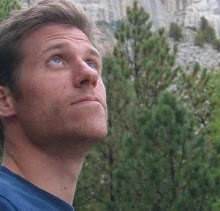
Ben and I have been attending some pretty thought provoking workshops here in Miami at the CCDA (Christian Community Development Association) conference. In the world of Christian Community Development people talk a lot about living “incarnationally”. This word, incarnational, keeps showing up in every workshop we attend. It is not a word you will find in the dictionary. Incarnational is a coined term popularly used by many Christians to mean, ‘a person’s embodiment of the gospel in a concrete location.’ It’s not a novel idea, right; we as the Church are the body of Christ, so it logically makes sense to refer to this as living incarnationally. Not so fast though. I think we need to remember a few important things when we use the term incarnational to describe our outreach. This is not semantics; it could mean the difference between pointing to Jesus or displacing Him. Here are two important qualifications I would like to offer on the subject:
One, there is only one true incarnation, and he is Jesus of Nazareth. Jesus is the only pure embodiment of the gospel; we are not. I think we would all agree with this statement. Yet, I find myself at times eclipsing Jesus in my attempt to be incarnational rather than simply pointing people to Jesus (as well as looking for them to point me to Jesus), the one full incarnation. When we say we are living incarnationally this does not mean we are Jesus but that we represent and point to Jesus.
Second, we must acknowledge that incarnational living is a two way street. If we are able to embody the gospel through the spirit in a concrete location, then it would follow that we will at times also have the gospel embodied before us by others. We reciprocally point one another to Jesus. I know when I think of living incarnationally, I think of it as my behavior towards others and not others’ behavior towards me. We must expand our view of living incarnationally to also include learning from others’ incarnational living.
What do you think? Do you think speaking of living incarnationally in our neighborhoods undermines the incarnation of Christ, why or why not? What other dangers do you think there are in using this language? How would you define living incarnationally? And what does living incarnationally mean to you?
One, there is only one true incarnation, and he is Jesus of Nazareth. Jesus is the only pure embodiment of the gospel; we are not. I think we would all agree with this statement. Yet, I find myself at times eclipsing Jesus in my attempt to be incarnational rather than simply pointing people to Jesus (as well as looking for them to point me to Jesus), the one full incarnation. When we say we are living incarnationally this does not mean we are Jesus but that we represent and point to Jesus.
Second, we must acknowledge that incarnational living is a two way street. If we are able to embody the gospel through the spirit in a concrete location, then it would follow that we will at times also have the gospel embodied before us by others. We reciprocally point one another to Jesus. I know when I think of living incarnationally, I think of it as my behavior towards others and not others’ behavior towards me. We must expand our view of living incarnationally to also include learning from others’ incarnational living.
What do you think? Do you think speaking of living incarnationally in our neighborhoods undermines the incarnation of Christ, why or why not? What other dangers do you think there are in using this language? How would you define living incarnationally? And what does living incarnationally mean to you?


